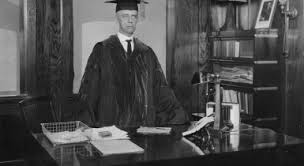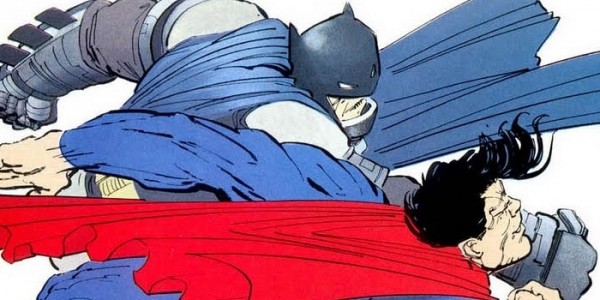A few days ago, I blathered on about how Zach Snyder’s Objectivist leanings make him singularly unsuited to tell the story of the Justice League (TL;DR version: the idea of uber-powerful individuals working together to pursue altruistic ends is not a good match with a philosophy that disdains altruism and collectivism as a matter of principle). But the DC cinematic universe has started out on very wobbly ground for another reason: desperation to catch up to the uber-successful Marvel machine, which had a 10-film head start when Man Of Steel premiered. This has led them to put the cart before the narrative horse in several respects, with the result that their Justice League is unlikely to become the phenomenon that The Avengers was. It will still turn a profit, I’m sure, but it will need to be shattering records to make a comparable return on its sure-to-be-astronomical budget, and the reaction to BvS all but suggests that their Cyborg spin-off is not going to get the kind of boost by association that something like Ant-Man enjoyed.
Warner Brothers wants their own Avengers, but they don’t have time to futz around laying the groundwork for their big team-up. One can almost feel bad (as one can for a multibillion dollar entertainment conglomerate) for WB in the way that they found themselves victims of both their own and the competition’s success. Iron Man was a surprise hit in 2008, and as Marvel spent the next 4 years churning out solo films for Thor, the Incredible Hulk, and Captain America, they probably looked on with curiosity but no great urgency. The films all turned respectable profits on modest budgets, and they were clearly building up to something bigger, but WB had its own superhero juggernaut in Christopher Nolan’s Dark Knight series. Those films were not only cash cows, but brought both critical acclaim and actual respectability (meaning award buzz and raves that didn’t qualify their praise with backhanded comments about “popcorn entertainment” or “summer blockbuster” what-have-you’s) to the superhero genre. They were also, with their dark and relentlessly grounded vision, singularly unsuited to crossovers with the more colorful characters of the DC universe – Nolan’s world could barely make room for a Robin that wasn’t even Robin, much less Mr. Freeze, much less Green Lantern. So even if they did look with a slightly jealous eye on what Marvel was accomplishing with its B-list heroes, it wasn’t about to muddy the waters for its golden goose to try to chase that, not while there was still juice to be milked from the cash cow.
 |
This sentence brought to you by my B.A. in Mixed Metaphors. Thanks, Jesuits!
|
Marvel has now released 12 films in a row that at the least turned a profit and were rated fresh on Rottentomatoes. Some were bonafide megahits, and along the way have not just validated Marvel’s 2nd tier of heroes (Captain America, Iron Man, Thor), but raised the boats of the entire brand such that C-listers like Black Widow, Ant-Man, and even freaking Groot have become something close to household names. That is a mind-boggling run of success. So naturally DC looks at its comparable stable of heroes, stocked with some even heavier hitters, and says there is no reason we can’t do the same thing, but better. And so the Justice League gets fast-tracked.
But Justice League is going to have problems living up to the standards set by The Avengers. Because the DCCU has started out in a rush to get to it, it is going to struggle to feel as momentous. I don’t want to make it out like Marvel made its creative decisions because they are noble geniuses, whereas DC is staffed by money-grubbing ignoramuses…Ignorameses? Ignorami?
 |
Stupid heads.
|
DC, on the other hand, having just woken up to find the tortoise already in the winner’s circle, is forced to play the hare. And while they began with a couple aces in the hole, they haven’t been able to build on those stronger blocks in the same way. I partly blame Zach Snyder’s inability to differentiate between "strong" and "heroic" for that, but it’s also in large part because they had to start at a sprint. The Avengers was the 6th MCU film, and the first time the major heroes crossed paths in a significant way. DC gathered its major trio together in its 2nd film, which was also the first appearance of this Batman and Wonder Woman, whose intervention in final battle belies that she was essentially a cameo role*.
 |
“I’ll stick with no motivation rather than risk getting stuck with
any of that nonsense they gave Eisenberg, thanks.”
|
And so their conflict rings entirely false, based completely on misconceptions and outright extortion. It could be avoided entirely if they just spoke to each other for more than 10 seconds instead of punching first. Of course, there is an extensive tradition of comic book writers using such misunderstandings to contrive ways to show heroes fight each other, before teaming up to take on some greater threat. Even The Avengers actually contains just as much superhero-on-superhero violence as BvS in terms of blows or screentime, but it doesn’t position that as its entire reason for being**. Despite all the sturm and drang around the “greatest gladiator match in the history of the world”, their big punch up has about as much riding on it in story terms as when Iron Man and Thor tussle in the forest toward the beginning of Avengers. But as we go into Civil War, the heroes have actual relationships that are being frayed by a conflict that by all accounts is not a misunderstanding, but a fundamental disagreement of philosophies. The Marvel movies have always been sort of proudly frivolous relative to the dour self-seriousness of Nolan/Snyder versions of DC heroes, but the slow build of the world over so many years and sequels lends this conflict motivation, drama, and weight that BvS has to insist upon.
 |
This review is for a different movie, but applies just as well
|
Now, I think TDKR is fairly overrated to begin with, but it’s strengths are largely in the Batman/Superman conflict, which would fine fodder for an adaptation. However, that conflict derives its potency from the characters having a shared history. It only really makes sense or matters coming after there has been a Justice League; as an origin for the Justice League it lacks internal logic and carries no weight. And of course its iteration of Batman as an irascibly violent old coot is a popular one, but is just strange to have the retired, over-the-hill version be our first encounter with him. That grizzled take only really works in the aftermath of a more classical, colorful version of the character. It’s an endpoint, not a jumping off point for the character to start palling around with Aquaman and the Flash. I don’t think even Frank Miller would ever suggest that TDKR would be best experienced as your very first Batman comic.
 |
Pictured: just some guy hitting a guy, apparently
|
I understand DC’s desperation to catch up the MCU’s sprawling success and profitability, I really do. But in trying to jump straight to Marvel’s current level of success, they are ignoring that they got there by building from the ground up. Trying to build from the top down, but with no foundations laid, is a dicey proposition at best. And it’s how messes like Batman v Superman get made.
 |
Sorry, I just find this picture really funny
|
*Imagine for a second that you weren’t familiar with Wonder Woman and saw this film – how freaking weird would it be that this person with so little screentime and no vested interest in the fight plays such a major role in the final battle? Demonstrating powers and weapons the movie provides no context for? I’m generally against the proposition that every movie has to stand completely on its own, and assuming some familiarity with the universe is one thing, but you do have to establish that universe. Like, if you decide to sit down with the third Hunger Games or fifth X-Men movie and complain that you don’t understand what’s going on, that’s kind of your fault for jumping in midstream. But this is different, because it’s not as though watching Man Of Steel would shed any light on the matter. BVS needs you to be familiar with other iterations of the character in order to understand its brand new take, like, at all. Which is emblematic of the way that the DCCU wants to use general pop culture awareness as its excuse to skip set up, rather than establishing its characters/conflicts in coherent internal context.
** Just look at the titles – one names itself after the team that the heroes form after clashing, while the other highlights that clash, and merely teases the formation of a team. Except there isn’t even a “dawn” in the movie. It ends with the death of Superman, and no Justice League. Batman tells a noncommittal Wonder Woman that they should probably gather more superheroes together, but there are no affirmative steps taken toward that. Iron Man’s post-credits teaser actually made more progress, because at least he seemed like Nick Fury had a plan with a name for it and shit. Alternately, look at the featured lines from the trailers of BvS and Civil War – Batman asking Superman “do you bleed?”, which is a legitimate question for him as he knows so little about the guy, vs “he’s my friend/so was I”, which is actual interpersonal conflict.
***Thanos has, as a veiny purple lump with a reluctance to rise from his presumably-padded throne, sometimes appeared less an omnipotent galactic overlord than a hemorrhoid that somehow has hemorrhoids.
No comments:
Post a Comment